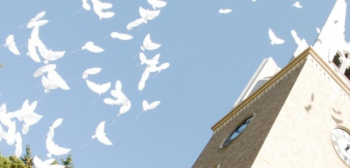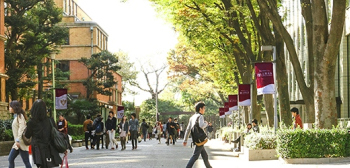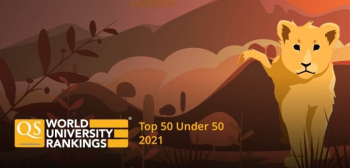- #=350 QS Global World Ranking
- PublicStatus
- Very HighResearch Output
- 16,655Total Students
- 1,959Faculty
- 2,228Int'l Students
QS Global World Ranking
The University’s position in the current QS World University Rankings.
The University’s position in the current QS World University Rankings.
Status
Whether the University is funded by the government of that country or state, or funded by private donations.
Whether the University is funded by the government of that country or state, or funded by private donations.
Research Output
The research intensity of the University, based on the number of papers output relative to the University’s size.
The research intensity of the University, based on the number of papers output relative to the University’s size.
Total Students
The number of full time equivalent students enrolled at the University.
The number of full time equivalent students enrolled at the University.
Faculty
The number of full time equivalent teaching staff employed by the University.
The number of full time equivalent teaching staff employed by the University.
Int'l Students
The number of full time equivalent international students enrolled at the University.
The number of full time equivalent international students enrolled at the University.
University of Tsukuba
About
Read more
Read less
The University of Tsukuba, founded in October 1973, is one of Japan?s leading comprehensive universities. Three Nobel Prize laureates have served as either president or faculty. The University of Tsukuba is a relatively new university, yet in fact, it has a long and distinguished history in the Japanese university system. Its origin dates back more than 130 years to the Meiji era when Japan started its modernization. What is now the University of Tsukuba was founded in 1872 as the Normal School (which later became the Tokyo Higher Normal School), the first teachers? college in Japan. Its successor, the Tokyo University of Education, founded in 1947, moved to the Tsukuba area, which is about 60 km (36 miles) northeast of Tokyo, in 1973.The planners of the University of Tsukuba aspired to create a new kind of institution at a time when scholars in Japanese universities were still reluctant to break down disciplinary barriers. As such, since its inception, Tsukuba has been a forerunner in university reform in Japan. For example, our academic and research units were designed in such a way as to enable interdisciplinary research and education. Moreover, it was here that Japan?s first graduate-level evening courses for professionals were offered in such areas as law and international business. Located at the center of Tsukuba Science City, the university grew simultaneously with the development of the city. This science city is well known internationally for its large concentration of major research institutes such as the Japan Aerospace Exploration Agency (JAXA) and the High Energy Accelerator Research Organization (KEK). The name ?Tsukuba? has attained high international esteem for its multitude of research accomplishments. Our campus is quite distinctive. The main Tsukuba campus covers an area of 258 hectares (636 acres), making it the largest single campus in Japan. Moreover, both the campus and the city are surrounded by beautiful nature. It is, however, not far from the metropolitan district. The Tsukuba Express, the new train system that began its service in the summer of 2005, now connects downtown Tsukuba with Akihabara, Tokyo, in 45 minutes.
About
The University of Tsukuba, founded in October 1973, is one of Japan?s leading comprehensive universities. Three Nobel Prize laureates have served as either president or faculty. The University of Tsukuba is a relatively new university, yet in fact, it has a long and distinguished history in the Japanese university system. Its origin dates back more than 130 years to the Meiji era when Japan started its modernization. What is now the University of Tsukuba was founded in 1872 as the Normal School (which later became the Tokyo Higher Normal School), the first teachers? college in Japan. Its successor, the Tokyo University of Education, founded in 1947, moved to the Tsukuba area, which is about 60 km (36 miles) northeast of Tokyo, in 1973.The planners of the University of Tsukuba aspired to create a new kind of institution at a time when scholars in Japanese universities were still reluctant to break down disciplinary barriers. As such, since its inception, Tsukuba has been a forerunner in university reform in Japan. For example, our academic and research units were designed in such a way as to enable interdisciplinary research and education. Moreover, it was here that Japan?s first graduate-level evening courses for professionals were offered in such areas as law and international business. Located at the center of Tsukuba Science City, the university grew simultaneously with the development of the city. This science city is well known internationally for its large concentration of major research institutes such as the Japan Aerospace Exploration Agency (JAXA) and the High Energy Accelerator Research Organization (KEK). The name ?Tsukuba? has attained high international esteem for its multitude of research accomplishments. Our campus is quite distinctive. The main Tsukuba campus covers an area of 258 hectares (636 acres), making it the largest single campus in Japan. Moreover, both the campus and the city are surrounded by beautiful nature. It is, however, not far from the metropolitan district. The Tsukuba Express, the new train system that began its service in the summer of 2005, now connects downtown Tsukuba with Akihabara, Tokyo, in 45 minutes.
University highlights
- 2012#203
- 2014#=210
- 2015#=198
- 2016#=219
- 2017#225
- 2018#=250
- 2019#=260
- 2020#270
- 2021#=265
- 2022#=285
- 2023#=312
- 2024#=355
- 2025#=377
- 2026#=350
QS Stars is a rating system that helps you select the right university based on your
interests. It provides a detailed look at an institution, identifying which universities rate highest in
the
specific topics that matter to you, like facilities, graduate employability, social responsibility,
inclusiveness, and more.
Campus locations
1-1-1 Tennodai, Tsukuba, JP,
1-1-1 Tennodai , Tsukuba , Ibaraki-ken , Japan , 305-8577
Similar Universities
Sophia University
7-1 Kioi-cho, Tokyo
Khoja Akhmet Yassawi International Kazakh-Turkish University
174 Kazybek bi street, Turkestan
Amrita Vishwa Vidyapeetham
Amrita Vishwa Vidyapeetham, Coimbatore
Related content

QS Top 50 Under 50 2020
By
Craig
OCallaghan
Updated
4.8k
4

Top Universities for Library…
By
Craig
OCallaghan
Updated
291
0

Top 10 Universities in Asia…
By
Sabrina
Collier
Updated
724
0

Top Universities for Sports-…
By
Craig
OCallaghan
Updated
769
0

Top Universities in Asia for…
By
Laura
Bridgestock
Updated
445
0

Top Universities in Asia for…
By
Laura
Bridgestock
Updated
508
0

Top Universities in Asia for…
By
Laura
Bridgestock
Updated
468
0
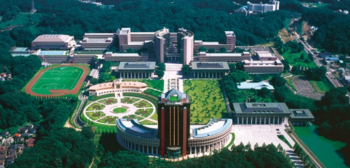
Top Universities in Asia for…
By
Craig
OCallaghan
Updated
1.6k
0
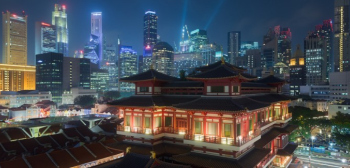
Top 10 Universities in Asia…
By
Laura
T
Updated
360
0
Test preparations
Featured University


Sponsored
438
QS World University Rankings
-
10 UG & 47 PGTotal courses
-
Private for ProfitStatus
-
HighResearch output
University of Tsukuba
basic
9
no
2228
L
EN

